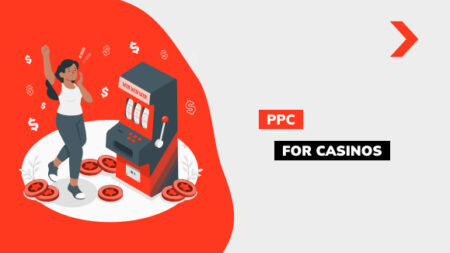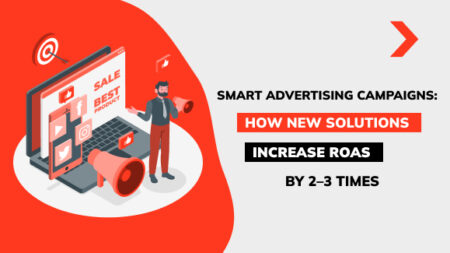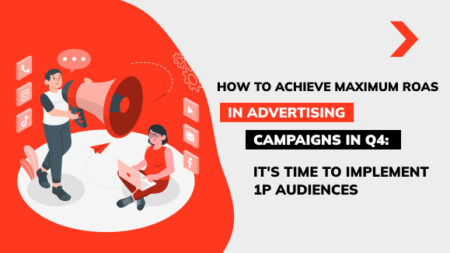PPC for Small Business
Whether new to PPC marketing or already set on using it to promote products, this article will clarify what PPC is and how it can benefit a business. Discover how PPC advertising can drive growth and enhance marketing strategies.
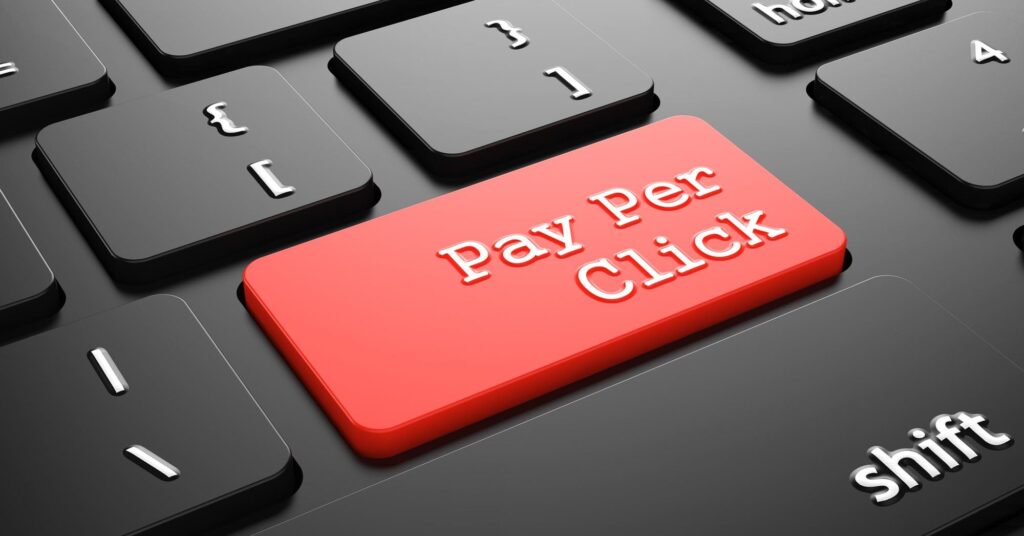
Why PPC is Crucial for Small Businesses
In today’s competitive digital landscape, enhancing your online presence is crucial. Pay-per-click (PPC) advertising is an effective strategy to achieve this. PPC allows to reach your target audience by targeting users based on demographics, interests, and search behavior, which increases the likelihood of converting them into valuable leads. Unlike conventional marketing methods, a well-managed PPC campaign can generate significantly more engagement and better conversion metrics. However, to maximize return on investment, precise management of PPC strategy is essential.
What is PPC for small business?
By investing in PPC advertising, you can reach broad and targeted audiences, convert them into leads, and maximize their ROIs. If you bid on keywords that suit products or services, you continue to drive targeted traffic. On average, an independent business can generate $2 for every $1 of investment in PPC ads, and people clicking through these ads are 50% more likely to decide to buy on the website than organic visitors (FreshBooks). This demonstrates that even small-scale PPC efforts can yield impressive results and drive substantial success.
How PPC Works
You only pay for ads when users click through the website, so your budget is spent solely on those interested in offers. Set up a PPC campaign on platforms like Google Ads and monitor your analytics. Initially, the cost per click is manageable, allowing you to conserve budget — an important factor for starting businesses.
PPC vs. Other Forms of Digital Marketing
You should learn about others to leverage the right digital marketing strategy. Here are the main disparities between some strategies:
- Search engine optimization (SEO). Compared to SEO, which focuses on organic rankings that take time to build, PPC offers immediate visibility but requires a budget for advertising.
- Social media marketing (SMM). Unlike SMM, which builds constant brand awareness, PPC targets users who are searching for specific products, making it more focused on engagement.
- Email marketing. This strategy is cost-effective and personalized, but it needs more instant reach of PPC, which directly reaches high-intent users through search engines.
Overall, PPC provides quick, targeted results, while other strategies like SEO, social media, and email marketing are more suitable for long-term reliability and brand awareness.
Benefits of PPC for Small Businesses
Not only is PPC much faster at bringing results than other online advertising strategies, but it is also effortless to set up. After launching your campaign, you simply need to wait for approval. Once approved, you can access execution insights and analytics. Most platforms, like Google Ads, offer tools for analyzing metrics such as clicks, impressions, marketing channels, and conversions generated through your PPC ads. Making PPC adjustments based on this data allows you to calculate your ROI and implement informed improvements.
Building Your PPC Campaign
Effective management is key to sustaining performance and making necessary adjustments. Regularly monitoring your account and analyzing campaign performance is crucial for success. By continuously optimizing strategy and ensuring it remains relevant to your business, you can make the right PPC decisions and keep the campaign performing at its best.
Understanding Your Audience and Market
Before you start, you should define goals for PPC advertising. Begin by identifying who you are trying to reach. Explore demographics, geographic information, behaviors, and pain points that align with ideal customers. In the following lines, we provide a step-by-step guide and PPC tips for small businesses to help set up your first campaign and optimize it for the best results.

Define Your Target Audience
Since PPC is mainly focused on building brand awareness and increasing conversations, it targets an audience that is unaware of you. Such audiences can become paying customers if they are acquainted with the business. Therefore, PPC campaigns help them enter the sales funnel, which has the potential to tilt their decision-making to your side.
Analyze Competitors
Scrutinizing the competitive market means looking at how other businesses implement paid advertising. It’s a chance to benefit from others’ success and identify their strengths, pain spots, and risks to your PPC marketing strategy.
Pay attention to how other brands use the following:
- Keywords. Look at their keywords to determine which of them works better.
- Ads. Analyze their headlines, descriptions, and call-to-action (CTA) messages.
- Bids. Getting insights into how toughly they are bidding on keywords.
Opponents could apply strategies they didn’t think of or replicate your brand to attract consumers. Assessing how others arrange their PPC advertisements offers an itinerary for possible guidelines.
Identify Relevant Keywords
Your ads must be relevant to the keywords to earn high-quality Scores. These scores define where the ad will appear and your cost-per-click (CPC). Monitor the performance of chosen keywords to identify which ones drive traffic effectively. Specific keywords tend to be less competitive and expensive, attracting a more targeted audience that is more likely to convert. Use this data to replace underperforming keywords with more effective ones.
Create a Strong Foundation
To establish a well-crafted campaign, use the same keyword research strategy. It’s very important to brainstorm related phrases that are relevant and distinctive to the business’s target audience and local communities. In addition, you should work with tools that manage keyword research and analysis to include high-volume and low-competition ones.
Build a dedicated landing page
A targeted webpage is a separate site designed for inclusion in a sponsored ad. It’s the specific page where visitors “land” when they click through ads. To optimize the landing page, create dedicated pages for each service or audience you target. Craft copy that resonates with visitors, providing information that supports conversions and ensuring your design is sleek and attention-grabbing. According to HubSpot, targeted webpages have an average conversion rate (CVR) of 5.89%, with a reasonable rate typically around 10%. To achieve this, your targeted page must effectively address the needs of the audience while supporting business goals.
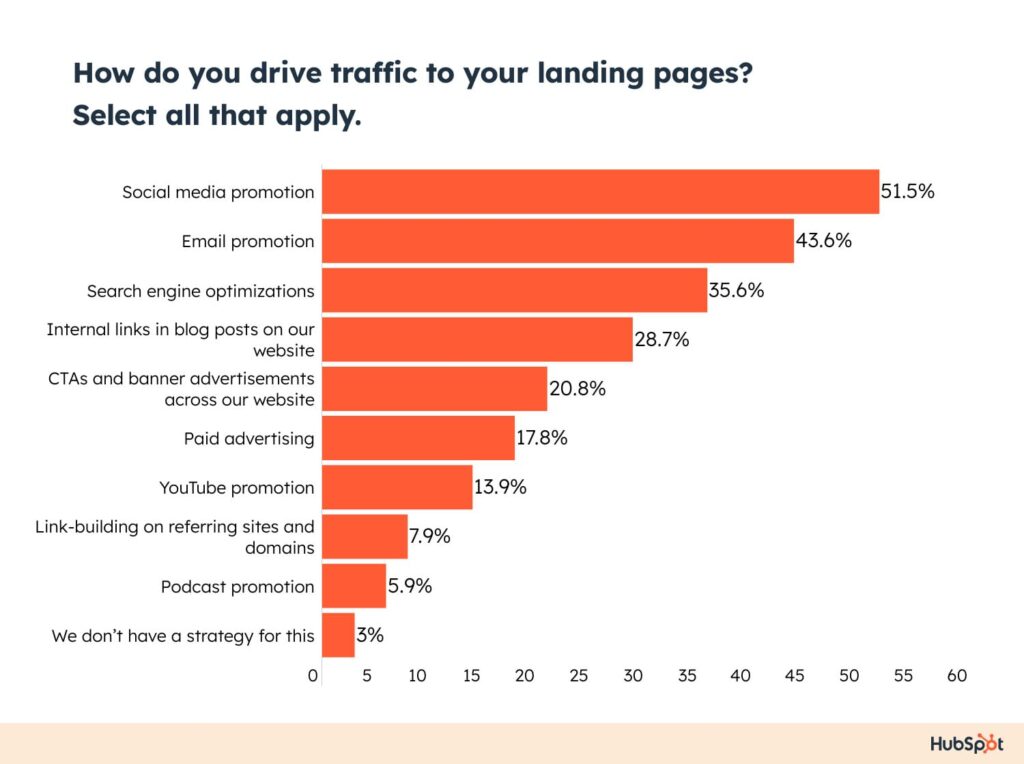
Start with a low budget
The average monthly cost is between $350 and $5,000, or 12 to 30% of ad spend (Source). Start with a smaller budget because you can work this way up until testing and optimizing. This is a low-risk ticket to begin spending on sponsored ads. However, to maximize the success of campaigns, we suggest investing at least a few thousand dollars.
Optimize for Performance
To maximize the effectiveness of your sponsored ads, you can rely on the following strategies:
- Ad Relevance. Ensure that the ad is relevant and reflects your business goals. Add ad copy and keywords to increase the user experience.
- A/B Testing. Attempt some A/B tests with alternative ad creatives, headlines, and body texts, and request messages to decide on the best option.
Regularly review your ad performance data and adjust strategies based on insights gained. This ongoing refinement helps ensure that ads remain effective and continue to deliver optimal results.
Precise keyword targeting
The most successful keywords to focus on for PPC are those with a higher intent for search. You can catch traffic using these keywords when the buying intent is dominant. Deciding on inappropriate words for the material or intended audience is an ordinary mistake. To prevent this, ensure that your keywords are appropriate by constantly evaluating and tweaking them.
Clear and compelling ad copy
Ad copy for PPC advertising refers to advert writing — successful content is created with an understanding of the demands and interests of your targeted audience. PPC ads that appear in search results are created by integrating a headline, a main body, a CTA, and any other forms of copies or write-ups.
Strong call to action
Action verbs add passion and circulation to your CTAs, rendering them more captivating. Dynamic CTAs such as “Urgently, invest in” and “Order now” are more stimulating than oblivious CTAs like “Keep Going” and “Continue.” Remember that not all action verbs are suitable for every situation — ensure they align with the specific context of PPC management.
Local focus
Targeted geographic advertising is a digital marketing strategy that allows advertisers to focus on specific geographic areas. By concentrating on particular locations, targeted geographic advertising helps generate more leads, attract more customers, and enhance visibility on search engine results pages. Starting with targeted geographic advertising can be highly effective for small businesses. It ensures that ads are shown only to users in the desired area, allowing to optimize your budget and reach potential clients within a specific radius of your physical location.
Mobile optimization
According to Mayple, mobile marketing advances reached a record of $321.1 billion in 2022, forecasted to climb to over $399.6 billion by 2024. Smartphones make up around 58.33% of all broad internet traffic. The initial step to mobile marketing is to attract individuals at the door and keep them there to ensure they convert into loyal buyers. Your website should be optimized to load mobile gadgets promptly. Most consumers will leave the website if it fails to load within a few seconds.
Measure and Improve
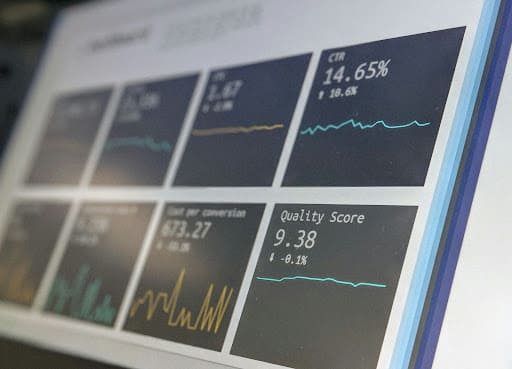
To maximize ad costs, you must thoroughly measure every marketing campaign. Some marketers need help comprehending how to monitor campaigns and express what they find to consumers successfully. However, we can help figure out critical points that should be included.
Track the following baseline data to include in further optimizations:
- Website traffic. How many visitors does the website have per day, week, or month?
- Leads. How regularly do you receive forms of contact, like calls or emails?
- Sales. Depending on the service, make sure you know the sales figures beforehand.
The objective is to peek at the correct metrics in the proper scenarios and then apply that information to make even the smallest changes to the campaigns you run.
Track and analyze performance
When managing PPC campaigns, it’s essential to monitor and evaluate the results continuously. Analyzing the customer journey can help you identify areas to enhance the conversion funnel. According to DataBox, 77.8% of businesses they surveyed were service-oriented, while 22.2% focused on products. Discussions about an appropriate funnel conversion rate (CVR) revealed that around 30% of respondents considered a CVR of 3.1%–5% acceptable.
Engage past visitors with retargeting
PPC for small businesses can be complicated, even for seasoned marketers, and anyone could make mistakes. When a customer leaves the website, you can hunt them immediately by displaying a retargeted advert on the following pages they visit. When they leave their cart, retarget them with something still in it, offering a gentle nudge that will convince them to return and finish the order they started.
Common Small Business PPC mistakes
Typically, an average small business makes the following mistake:
- Failure to establish clear goals: Evaluating progress can be challenging without specified objectives.
- Overlooking keyword research: Ignoring to invest time and money in keyword research frequently results in unproductive ad spend.
- Broader targeting: Ad campaigns must be targeted to reach their intended target group.
- Lack of negative keywords: Failure to use negative keywords could result in ads being shown to disengaged parties, ruining your budget.
- Weak ad copy: Your PPC advertising offers the first thing that matters to potential buyers. Therefore, it must be appealing.
- Improper website page optimization: Your CVR will suffer when pages are irrelevant or incompatible with your ad content.
By keeping these principles in mind, you could improve quality score and expand the business. You must disregard them to obtain the desired results.
PPC Marketing Agency for Small Business
Partnering with the right PPC agency can make all the difference for business. These PPC marketing efforts drive increased revenue and leads by understanding what the right customers are searching for online. This cost-effective approach is ideal for businesses aiming to grow and meet their unique needs.
Benefits of Hiring a Marketing Agency
Hire an agency to review your marketing strategy and uncover any missed opportunities. They can craft and optimize campaigns with a unique and compelling approach tailored to resonate with your ideal customers. Consider partnering with a specialized agency if in-house marketing efforts aren’t delivering the desired results. A reputable agency will thoroughly analyze what’s working and what isn’t, ensuring that strategies are aligned with business needs and effectively promoting your products or services.
Choosing the Right Agency
To get the most out of your PPC investment, start by clearly defining goals. This involves detailing what you hope to achieve with campaigns, such as increasing leads or driving sales. A well-defined scope of work helps guide the agency, enabling them to tailor their approach to business needs. Whether you’re looking for a top PPC agency for comprehensive campaign management or a specialized firm focusing on business requirements, having clear objectives ensures that the agency can meet your expectations and deliver effective results.
PPC Services Offered by Elit-Web
Our PPC experts are dedicated to helping startups achieve their marketing goals. To get business on the right track, we start with a thorough audit of your project, including KPIs and previous efforts, to identify key products and potential customers. Next, we develop a media plan based on current data or industry averages, setting a budget and outlining expected outcomes. It’s best to have a clear plan to ensure effective setup and management of campaign. After launching, we provide regular reports to help your business grow by tracking performance and making necessary adjustments.
FAQ
Does PPC work for small businesses?
Yes, absolutely. Advertising with PPC grants particularly efficient targeting, enabling businesses to generate specific demographic groups, localities, interests, and behaviors.
Why do you need PPC advertising for your business?
PPC is a straightforward and profitable way to maximize the quantity of traffic flowing to the website you run. Therefore, it could lead to increased buying decisions.
What is SEO vs PPC for small business?
SEO ensures long-term visibility in SERPs. This creates an enduring presence through constant effort. PPC offers immediate visibility. However, its visibility on SERPs decreases once the campaign pauses.
How much does PPC cost per month?
The monthly cost of PPC usually varies from $1,000 to $10,000, whereas larger businesses can shell out between $50,000 and $100,000, or as much as $250,000.


